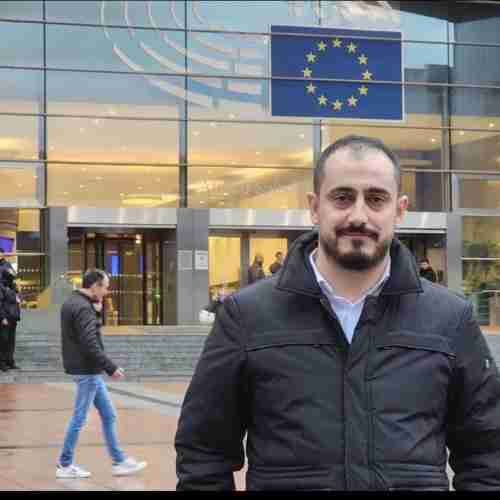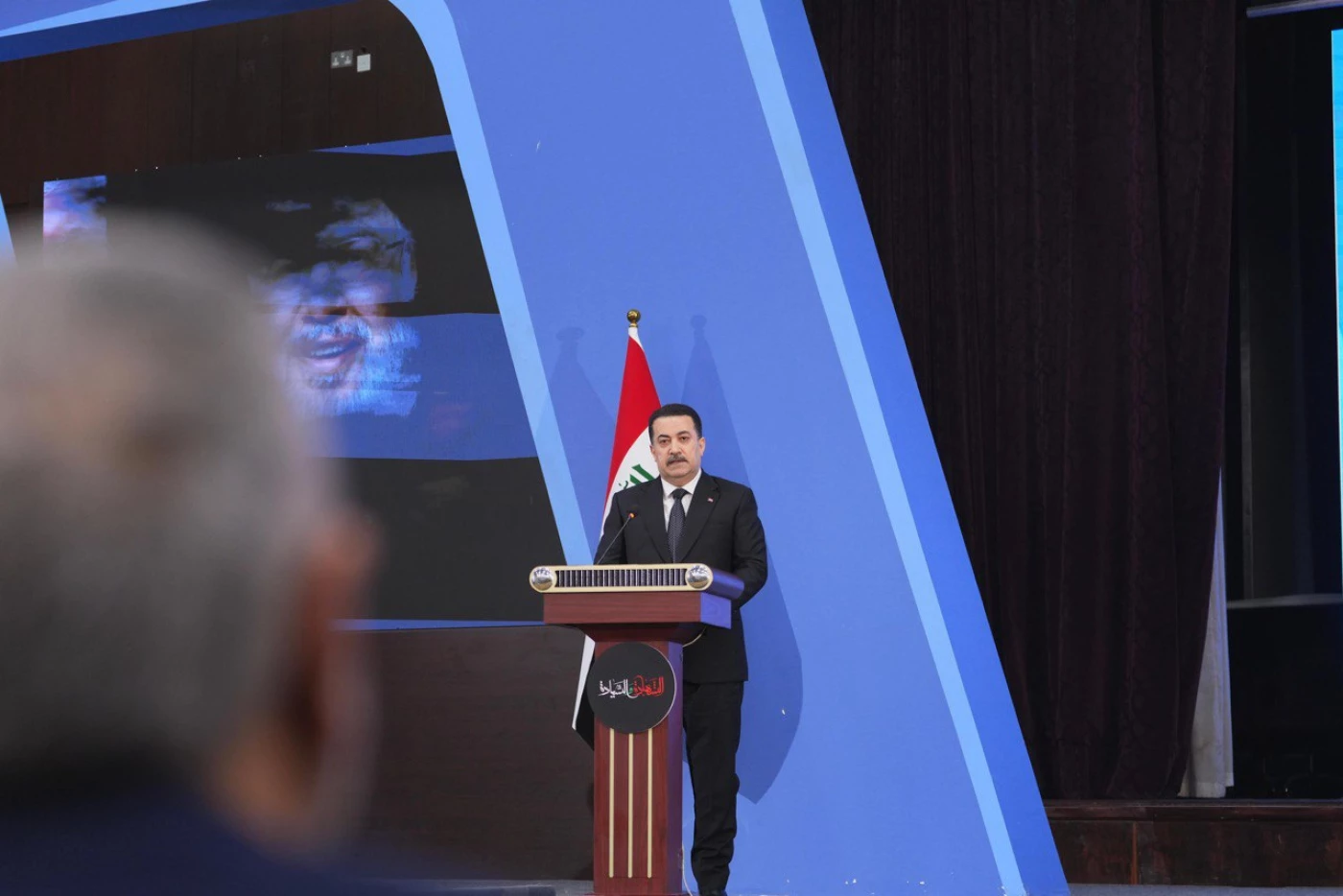ERBIL, Kurdistan Region of Iraq - Iraqi Prime Minister Mohammed Shia’ al-Sudani on Sunday commended Popular Mobilization Forces (PMF) as a “fundamental factor” in the fight against the Islamic State (ISIS), preserving the country’s security and peace.
Speaking at a ceremony marking the fifth anniversary of the killing of Qasem Solaimani, and Abu Mahdi al-Muhandis, Iraqi PM Sudani said the PMF was "a fundamental factor of security and peace that paved the way for the government to launch service and development projects, and fundamental administrative and economic reforms.”
The PMF or Hashd al-Shaabi was formed upon a call by Shiite cleric Ayatollah Ali al-Sistani soon after the Islamic State (ISIS) took over large swathes of territory in Iraq. The force has been officially incorporated into the regular Iraqi defense forces, enjoying similar privileges as the Iraqi army do.
Sudani's comments come amid reports of growing pressures by regional and international players for the dissolution of the PMF, an allegation top Iraqi officials have categorically rejected.
"Today, the Popular Mobilization Forces constitute a basic force in defending Iraq,” Sudani said. "Our government was keen to fortify the Popular Mobilization Forces by supporting them... like the rest of the security forces."
Soleimani, leader of Iran’s elite Quds Force, and Muhandis, a top commander in the PMF forces, were killed in a US airstrike ordered directly by then President Donald Trump, outside the Baghdad International Airport on January 3, 2020.
Iraqi officials have repeatedly slammed the US for the January 3 incident, defining it as a breach of Iraqi sovereignty. Just two days after the incident, the Iraqi parliament passed a resolution calling on the government to expel US troops.
Tehran has continuously said that they would avenge the death of Soleimani, increasing the volume of their attacks, through Iraqi proxy militant groups, targeting US missions and troops in the country.
"The martyr al-Muhandis always emphasized supporting and preserving the state and that the Popular Mobilization Forces are part of the state and under its umbrella and defend it,” Sudani said.
This year's anniversary comes at an increasingly sensitive time in the region, as recent regional developments, such as the collapse of Bashar al-Assad in Syria, and major setbacks of Hezbollah in Lebanon, and Hamas in Palestine following the deaths of their top leaders in Israeli attacks, have dealt a massive blow to Iran and its militant proxy groups across the Middle East.
Syria’s developments
An 11-day sweeping rebel offensive spearheaded by Hay’at Tahrir al-Sham, led by Ahmed al-Sharaa, brought a five-decade-long rule of the Assad family to an end on December 8.
Soon after Assad’s ouster, Damascus became a hotspot for diplomats’ visits worldwide, including a top delegation from Iraq headed by Iraqi Intelligence Service chief Hamid al-Shatri on December 26.
"The developments in Syria are influential and effective in the present and future of the region and require work to support stability and establish a pluralistic system that respects all components,” Sudani said.
The Iraqi premier stressed that “there must be no interference in Syria's affairs from any party, and its sovereignty and territorial integrity must be respected.”
Baghdad was a key backer of Assad and had expressed worry on multiple occasions that the rapid developments in the neighboring country would pose security threats to Iraq.
"Iraq is fully prepared and ready to respond and deter any aggression,” Sudani said.



 Facebook
Facebook
 LinkedIn
LinkedIn
 Telegram
Telegram
 X
X


